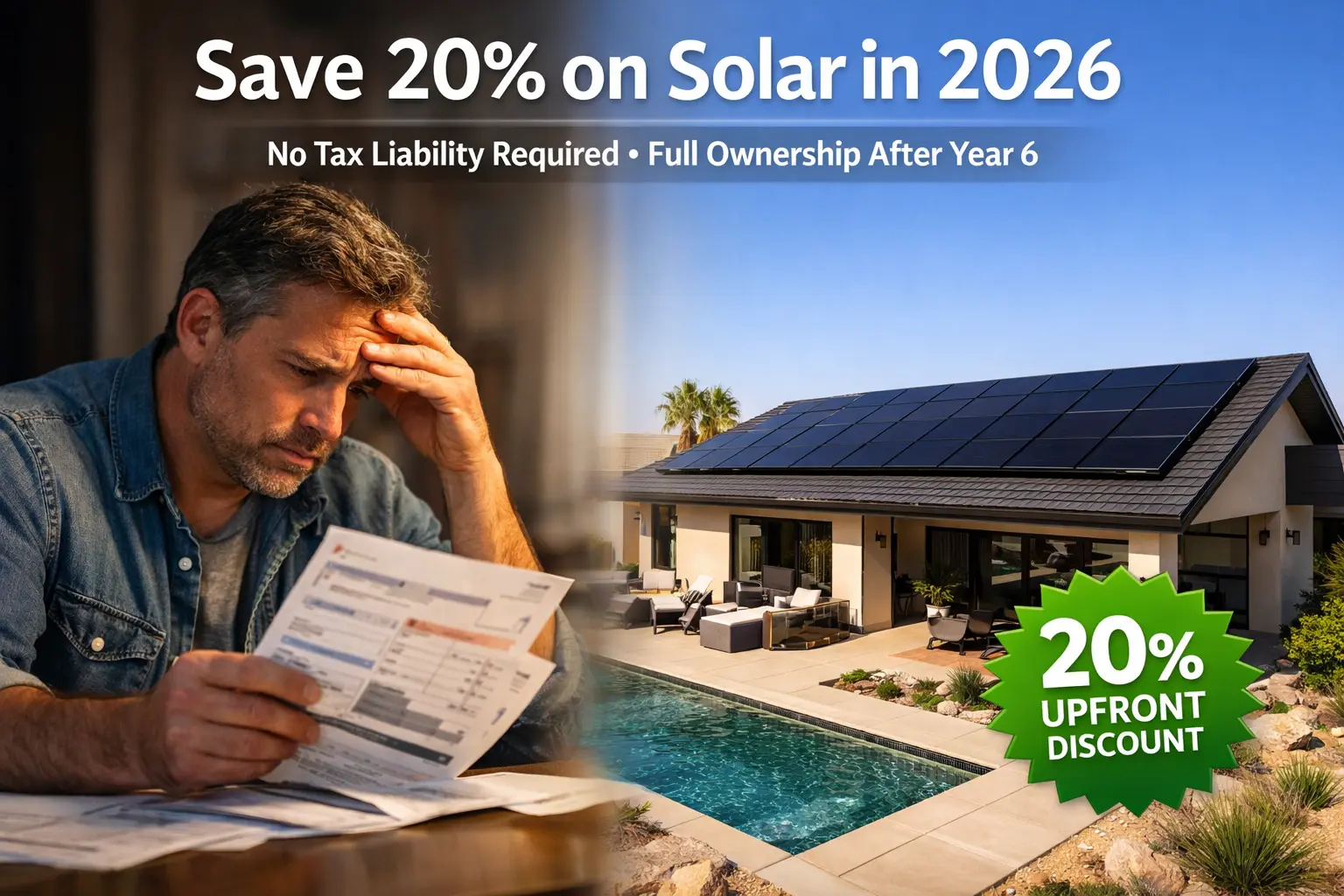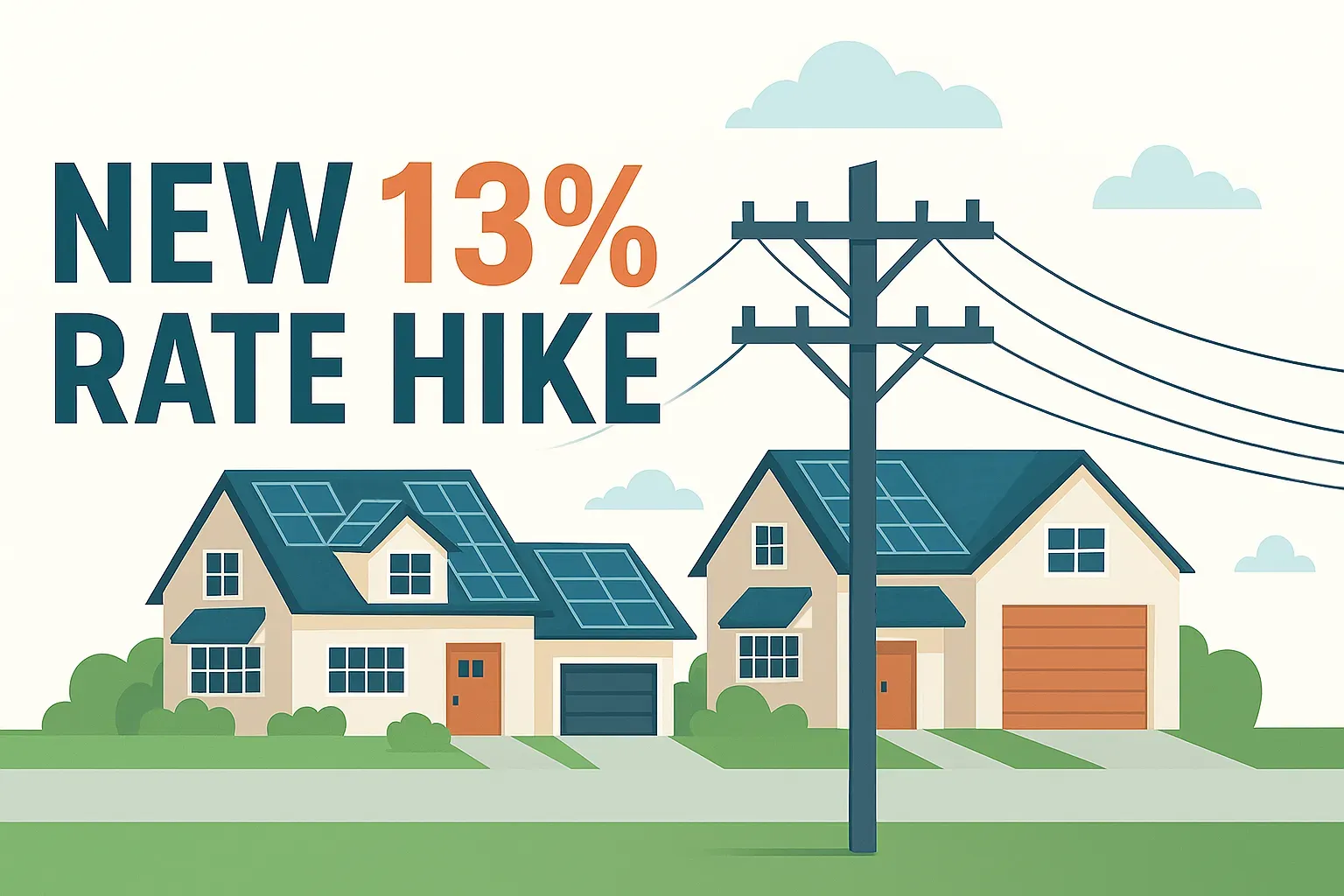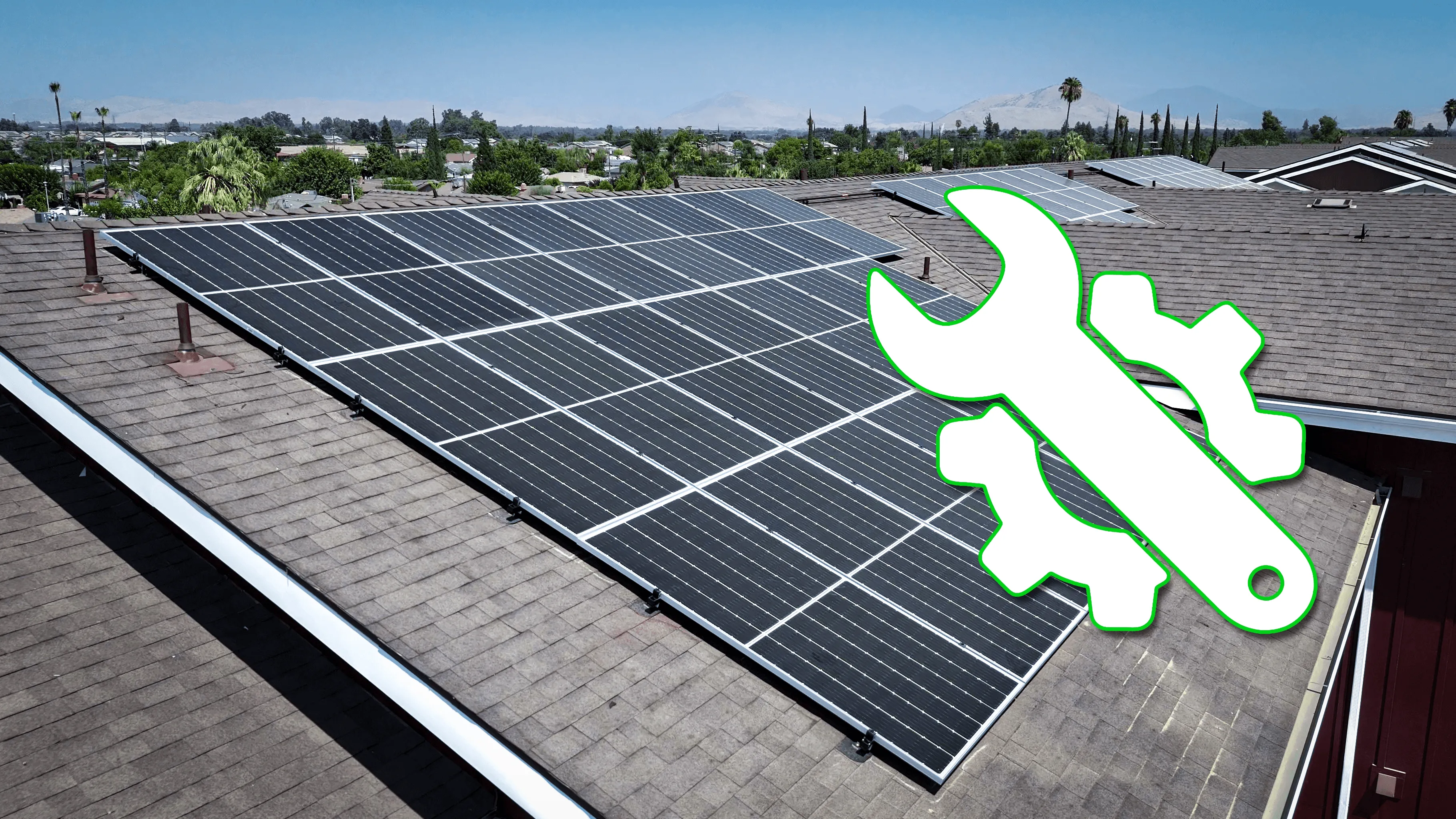Published On:
May 24, 2024
While the sun never sends a bill, installing and maintaining its solar energy systems can indeed cost you. Solar panels might seem like an environmentally friendly way to reduce electricity bills, but they come with 7 disadvantages of solar energy.
For instance, did you know that the upfront cost could deter many homeowners due to high initial investments required?
Moreover, not every roof will play nice with solar installations—some homes simply aren't suitable candidates.
Beyond installation woes, there's also the issue of the environmental impact of manufacturing these panels, which includes greenhouse gas emissions and the use of hazardous materials.
And let’s not forget about land use; large-scale setups demand vast spaces that could otherwise serve agriculture or natural ecosystems. While choosing solar energy has its perks in sustainability terms—it’s essential!
Ready to harness the sun’s power and reduce your energy bills? Contact Option One Solar today to find out how solar energy can be tailored to fit your needs.
Solar Panels Are Expensive Up-Front
Solar panels can seem expensive at first, but they can actually save you a lot of money on electricity bills over time.
The initial cost depends on the size of your system and the panels you choose, but there are financing options available to make them more affordable.
While the upfront investment might be significant, you could be powering your home with free sustainable energy in just a few years!
Storage of Solar Energy Is Also Expensive
One of the 7 disadvantages of solar energy is preserving the sun's power for nighttime use. Solar panels produce great electricity during the day, but what about at night or on cloudy days?
Storing that extra energy can be expensive. Battery backup systems are popular, but the technology is still new and costly.
There are cheaper options, but they might not last as long or work as well. This energy storage is important because without it, you'd rely on the regular grid at night, reducing the savings from your solar panels.
The good news is that as technology improves, storing solar energy should become cheaper and easier, making solar power an even more attractive option for your home.
Solar Energy Isn't Suitable for All Roof Types
Solar panels are a great choice for many homes because solar energy reduces electricity bills, but they aren't perfect for everyone (one of the 7 disadvantages of solar energy).
Your roof needs sunshine! Homes with shade or facing north might not work well. Also, your roof needs to be strong and in good shape to hold the panels.
It might not be a good fit if your roof is old or damaged. Lastly, you'll need enough space for the panels.
If your roof is small or has lots of vents or pipes, you might not be able to fit enough panels to make a big difference.
Don't worry, though! If your roof isn't ideal, there are other options.
Solar panels can be placed on the ground in your yard, or you can join a community solar program and share a solar array with others. Option One Solar can help you decide which option is best for your home!
Solar Panel Manufacturing Has Environmental Impacts
One of the 7 disadvantages of solar energy is that the production of solar panels can have negative effects on the environment, from the mining of raw materials to the disposal of old or damaged panels.
Energy-Intensive Production
The manufacturing process for solar panels is highly energy-intensive.
It requires the use of high-temperature furnaces and other industrial equipment that consume significant amounts of electricity, often generated from fossil fuels.
This means that the carbon footprint of manufacturing solar panels can be quite high, especially in regions with coal-heavy power grids.
Toxic Materials
Another concern is the use of hazardous materials in the manufacturing of solar panels.
Some of the key components, like solar cells and batteries, contain toxic chemicals like cadmium, lead, and sulfuric acid.
If not handled and disposed of properly, these materials can pose serious risks to human health and the environment.
Recycling Solar Panels and Batteries Is Challenging
Solar panels are great for the environment, but what about when they get old? Right now, recycling them is a bit tricky.
Imagine a big pile of used panels – that's what scientists are worried about if we don't improve recycling.
There aren't enough recycling plants for all the old panels, and some of the materials inside are kind of tricky to take apart.
If they leak, these materials can be dangerous, so they need special care.
Scientists are working on better ways to recycle solar panels, and some companies are even designing them to be easier to take apart later.
Here at Option One Solar, we're committed to using the latest solar technology. This means we're looking for ways to minimize the environmental impact of solar energy, including recycling.
We want to make sure solar panels are a clean and sustainable choice for your home, from start to finish!
Solar Energy Requires Significant Land Use
Solar power plants are awesome, but they take up a lot of room! This is one of the 7 disadvantages of solar energy.
A big solar farm that powers a whole town might need hundreds of acres of land. That much space can be hard to find, and it could affect animals and plants that live there.
Here at Option One Solar, we believe in solar energy, but we also care about the environment. That's why we focus on helping homeowners use solar panels on their roofs.
This way, we can get renewable energy sources from the sun without needing a giant farm. Solar panels on your roof can still make a big difference, and they won't bother any wildlife!
So, if you're interested in solar energy, think about rooftop panels for your home. It's a great way to be good for the environment and save money on your electricity bill!
Recouping the Investment in Solar Energy Takes Years
Solar panels are a great way to save money on electricity bills in the long run, but they do cost a lot upfront (one of the 7 disadvantages of solar energy).
It can take several years to make back the money you spend on installing them. Think of it like a piggy bank for electrical energy!
The exact wait time depends on several factors, such as the cost of the system, any discounts you receive, and the cost of electricity in your area.
On average, it takes 7-12 years to break even on solar panels. That might seem like a long time, but after that, you're saving money every month!
Here at Option One Solar, we can help you figure out if solar panels are a good fit for your home.
We'll consider how much sun your roof gets, how much energy you use, and other factors to see if the savings will outweigh the upfront cost.
Solar isn't perfect for everyone, but we can help you decide if it's right for you!
FAQs about 7 Disadvantages of Solar Energy
What is the main negative of solar energy?
The high upfront cost remains the biggest drawback for many homeowners considering solar panels as an alternative energy source.
What is the big weakness of solar energy?
Solar's dependency on sunlight limits its efficiency in areas with inconsistent weather or frequent cloud cover.
What are 2 disadvantages to the environment of using solar energy?
The manufacturing process emits greenhouse gases and involves toxic materials like cadmium which harm ecosystems if not managed properly.
Unveiling the Challenges of Solar Energy
Solar energy sounds amazing, but there are some 7 disadvantages of solar energy to consider.
The upfront costs and battery storage can be expensive at first. On top of that, if your roof isn't suitable or you have limited space, installing solar panels can be tricky.
Even though solar energy is clean, making the panels requires a lot of resources, and recycling them can be difficult.
Large solar farms take up a lot of space, which can affect wildlife and agriculture.
It can also take a while to save enough money on your electricity bill to make up for the cost of installing the panels.
Choosing solar power isn't just about using sunshine. It's about balancing challenges with long-term benefits.
Every new technology has its problems, but there's also room for improvement. We're figuring things out as we go!
Transform your energy solution with Option One Solar. Contact us to start your journey to sustainability now by scheduling your free consultation. Your future of cleaner, more affordable energy awaits.



